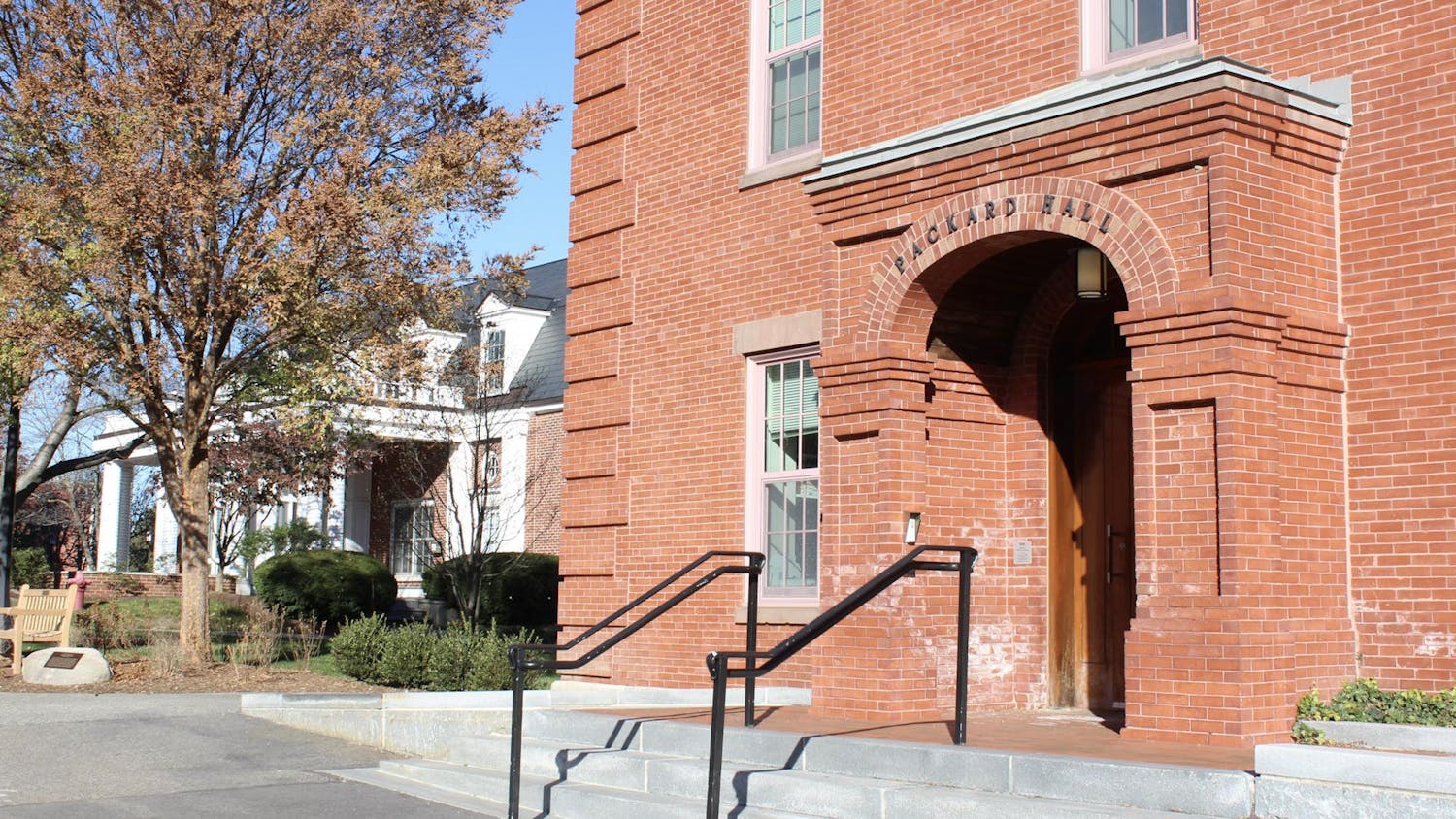University administrators addressed a crowd of around 100 people at a Budget Transparency Town Hall on Tuesday, hosted by Tufts Community Union (TCU) Senate and Tufts Student Action (TSA).
The event, intended to start a discussion about the Tufts budget as well as current debt in the School of Arts and Sciences and School of Engineeering (AS&E), included an introduction from University President Anthony Monaco, testimonies from members of TSA, presentations from Tufts administrators and student questions. Provost David Harris, Executive Vice President Patricia Campbell and Dean of Arts and Sciences James Glaser presented at the event.
Anna Del Castillo, vice president of TCU Senate, along with Jamie Neikrie, chair of the senate's Administration & Policy Committee, planned the town hall. Del Castillo spoke at the beginning of the event, emphasizing the importance of transparency and discussion spaces for both administrators and students to talk about important issues.
Niekrie, in an interview prior to the event, explained that the town hall would provide administrators with a chance to explain themselves before the event.
“I think that the university is getting a lot of pressure for not being transparent enough on a lot of issues, and I think that they are coming around to understanding that they have to explain things to students. And that it’s an educational opportunity, this doesn’t need to be a combative thing,” Neikre, a senior, said. “We’re going to try to do our best to get real and honest answers from the administration.”
Monaco gave introductory remarks, stating the university’s commitment to transparency. He identified a continuous goal of bettering communication between the administration and student body, and acknowledged that there is still more work to be done in this area.
“We believe a better shared understanding of budget issues will benefit all of us and strengthen our working relationships,” Monaco said.
Juniors Parker Breza and Amira Subaey, members of TSA, then shared their personal experiences struggling with financial aid and the increasing costs of Tufts. They explained that many students feel like they are in crisis as a result of the financial burden of Tufts and the constant uncertainty which students face. Breza said that higher education must be open to everyone.
"Higher education cannot be a luxury. It is an economic imperative that every family should be able to afford, regardless of race, class, citizenship or status,” Breza said. “We will continue to fight against looming threats and tuition hikes, and hold Tufts accountable to its current and future students.”
Each member of the administration panel then gave a brief presentation on aspects of the Tufts budget, offering information published in a recent Daily article. Harris discussed how the increasing costs of Tufts are similar to those of peer institutions, and noted that Tufts meets 100 percent of demonstrated financial need of all admitted students.
Campbell then presented the budget of Tufts as an institution, breaking down the revenue and expenses. According to Campbell, most of Tufts’ revenue comes from tuition, while most of the expenses go to salaries and benefits. Campbell also identified Tufts’ increased costs this year due to the construction of new buildings such as the Science and Engineering Complex.
Finally, Glaser presented on the School of Arts and Sciences budget, explaining the ways the administration sets budget priorities and plans to tackle Tufts' deficit.
The floor was then opened up to student questions for about 35 minutes, during which nine students spoke about their concerns. Students shared personal experience struggling with financial aid and their frustration regarding the administration’s lack of support or transparency of information.
One student spoke about the disparity between Tufts’ statements of meeting 100 percent demonstrated financial aid need and the experience many students have -- not receiving all they truly need. The question, met with support from the audience, was answered by Harris, who stated that the administration is aware of the gap and is searching for ways to remedy the discrepancy.
Dean of the School of Engineering Jianmin Qu, who joined the panel for the question-and-answer section, said that admitting students of all income levels is important.
“Students from wealthy families … do pay the full fare. And in reality, what really happens is some of that coverage ... will go over to financial aid to help the students from low-income families,” Qu said. “I’m not saying it’s 'fair,' but the current system in some way equalizes the difference in income.”
Students also asked about the availability of housing with the current deficit, and how well the Board of Trustees represented the student body. Additionally, students stated their discontentment and confusion with Tufts accommodations for low-income students. In response, the administrators stressed that considerations about increasing financial aid and preventing tuition hikes need to be balanced against the cost of maintaining Tufts as a quality institution
Del Castillo closed the event by urging students to continue the dialogue about budget transparency, acknowledging the need for further conversation and communication with the administration.
“A town hall can’t solve the problems of rising tuition, and only so many answers can be given in this room,” Del Castillo stated. “So keep these conversations happening outside of this room, let’s talk about it amongst each other as students, because this is a real issue not just happening at Tufts. The conversation doesn’t end here tonight … let’s keep having this dialogue.”
Prior to the event, Neikrie spoke on his hopes for future openness in communicating with the administration.
“I’m hoping that this is the beginning of a more collaborative process, where the university feels like it can arrange these town halls or arrange dialogues when there is an issue on campus,” Neikrie said.
Town hall on budget transparency adds to financial conversation

The panel talks at Alumnae Lounge about Tufts University's finances on Dec. 5, 2017.





